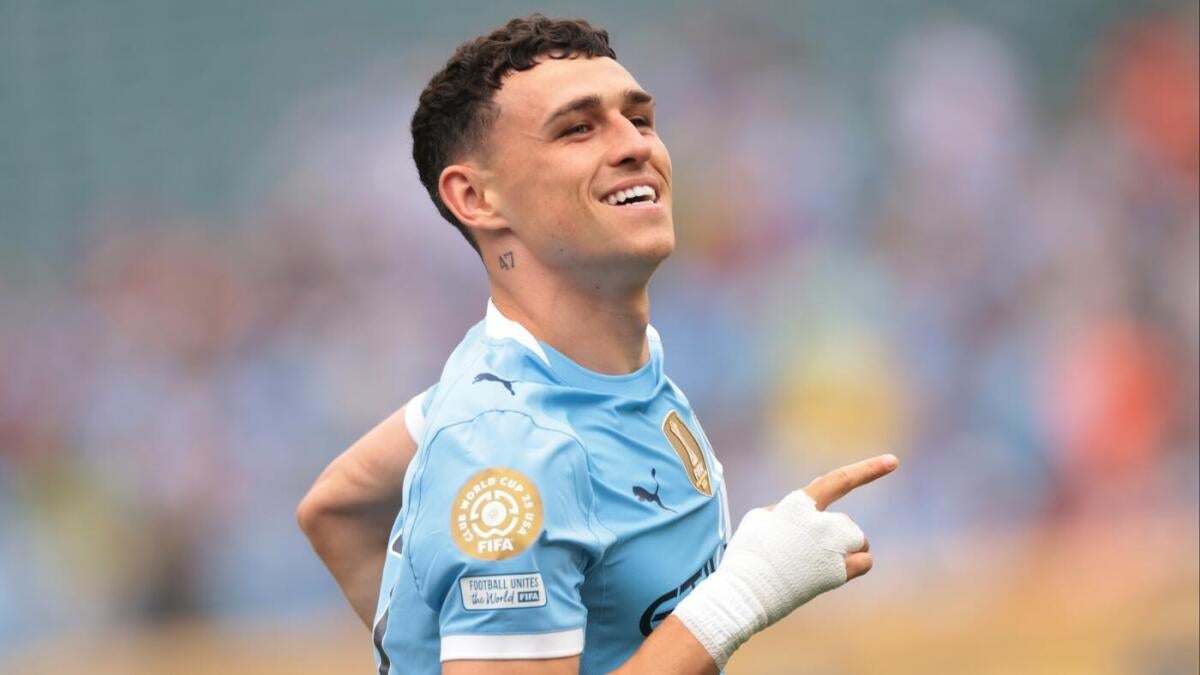The Shifting Sands at Manchester City
The departure of Kevin De Bruyne from Manchester City signals more than just the end of an era; it marks a pivotal moment that demands a recalibration of the team’s creative engine. For years, De Bruyne has been the architect of City’s attacking prowess, a maestro whose vision and execution dictated the tempo and direction of play. Now, all eyes are on Phil Foden, the homegrown talent increasingly positioned as the natural heir to the Belgian’s throne. Recent performances, particularly at the Club World Cup, suggest Foden is not merely stepping into De Bruyne’s shoes but forging his own path, albeit one laden with expectation and scrutiny.
The Weight of Succession
The narrative surrounding Foden has long been one of immense potential. Described as a “generational talent” in his youth, the pressure to deliver consistently at the highest level has, at times, appeared to weigh heavily on the young Englishman. Reports indicate a period of struggle for Foden, with off-field issues and fitness concerns impacting his form. He himself acknowledged a need to “get his head mentally right” to recapture the brilliance he displayed previously. De Bruyne recognized this, stating Foden needed to “step up now” with a vacancy available, implicitly acknowledging the impending shift in the team’s dynamic.
However, the timing of De Bruyne’s departure, while anticipated, accelerates the need for a seamless transition. Guardiola has been actively trialing options to replace De Bruyne’s creative influence, with the succession plan initially leaning towards Foden. The question now isn’t *if* Foden will assume a more central role but *how* effectively he can replicate – or surpass – De Bruyne’s impact.
A Refreshing Rejuvenation
Recent displays suggest a turning point. The consensus is that Foden appears “refreshed and rejuvenated,” finding a newfound “freedom” in his game. His performance at the Club World Cup, where he scored and demonstrated a renewed confidence, is a prime example. This resurgence coincides with the post-De Bruyne era, suggesting the change in circumstances has unlocked a different level of performance within Foden. This isn’t simply about filling a void; it’s about evolving the team’s approach.
While comparisons to De Bruyne are inevitable, Foden possesses a different skillset. Heatmaps reveal striking similarities in positioning with De Bruyne, both favoring the right wing, but Foden’s pace and dribbling ability offer a different dimension. He’s not necessarily a direct replacement but a player capable of providing a similar level of creative output in a slightly altered style.
Beyond Foden: A Multifaceted Approach
While Foden is central to the plan, Manchester City isn’t placing all their eggs in one basket. The club has identified other potential successors to De Bruyne, including exploring the possibility of pairing Foden with a high-profile attacking midfielder – potentially involving a significant investment (£85 million has been mentioned). This suggests a pragmatic approach, acknowledging the difficulty of replacing a player of De Bruyne’s caliber with a single individual.
Guardiola’s tactical flexibility is also key. He has demonstrated a willingness to utilize Foden and De Bruyne as twin No. 8s, recognizing the synergy between their abilities. However, against stronger opposition, a more defensively solid midfield configuration is often preferred, potentially limiting Foden’s attacking freedom. The challenge for Guardiola is to find the optimal balance, maximizing Foden’s creative potential while maintaining the team’s overall stability.
The Challenges Ahead
Despite the positive signs, significant hurdles remain. Foden’s consistency has been questioned, and replicating De Bruyne’s output – 13 goals and 20 assists in a single Premier League season – is a monumental task. There’s also the issue of City’s overall form. The team is undergoing a “rebuild,” and Foden’s individual brilliance can only take them so far.
Furthermore, the pressure to perform will only intensify. As De Bruyne’s influence fades, the spotlight will increasingly focus on Foden, and any dip in form will be heavily scrutinized. The expectation is not just to fill the creative void but to elevate his game to the level of De Bruyne, David Silva, and Bernardo Silva – a pantheon of City legends.
A New Era Dawns
The departure of Kevin De Bruyne is more than just a personnel change; it’s a symbolic shift. It signifies the end of an era defined by a singular genius and the beginning of a new chapter centered around a homegrown talent. Phil Foden has the opportunity to not just replace a legend but to define a new legacy for Manchester City.
His recent form suggests he’s embracing this challenge, displaying a renewed confidence and a willingness to step into the spotlight. Whether he can consistently reach the heights of his predecessors remains to be seen, but the early signs are encouraging. The future of Manchester City’s attack rests, in large part, on the shoulders of Phil Foden, and the club – and its fans – are eagerly anticipating the unfolding of this exciting new era.

